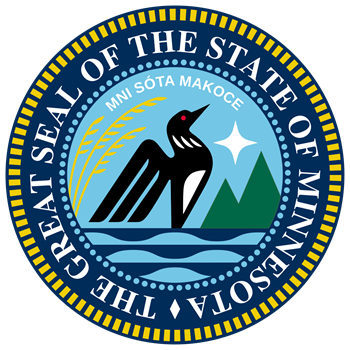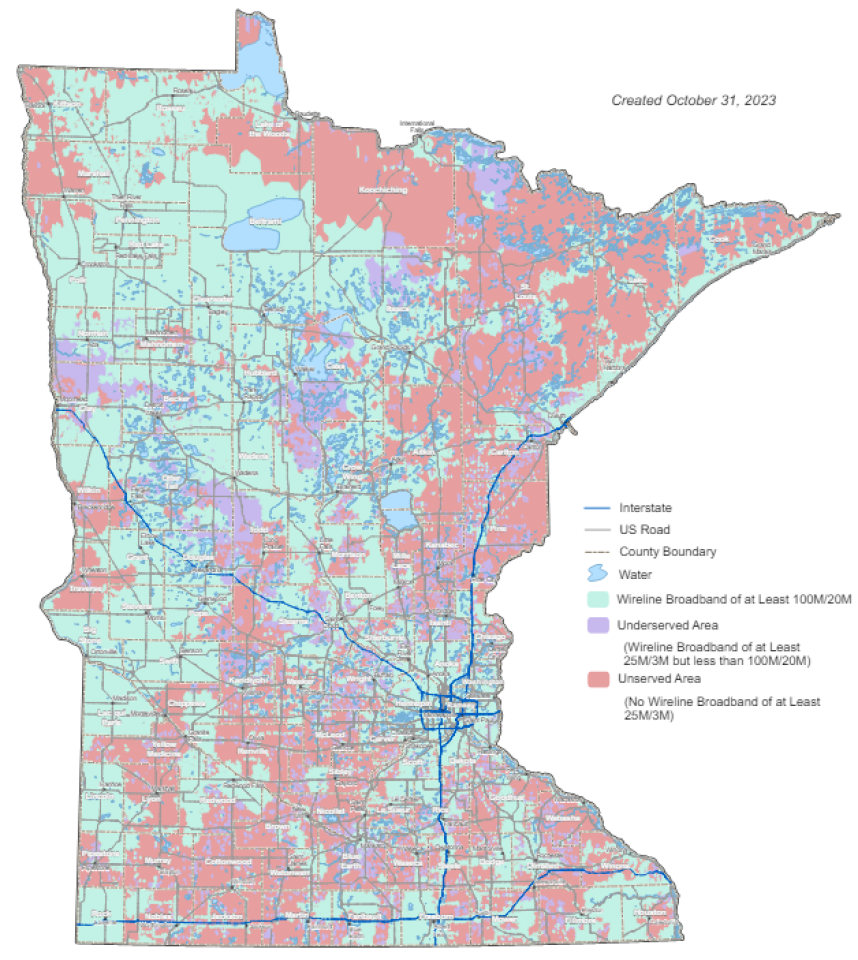
Community broadband advocates have scored a major victory in Minnesota as state lawmakers there have repealed the state’s preemption laws that prevented cities and towns in the Land of 10,000 Lakes from providing municipal broadband services.
The new legislation, signed into law yesterday by Gov. Tim Walz, took aim at two statutes that sought to protect large monopoly telecommunications providers from competition.
New Law Unwinds Antiquated Statutes
One antiquated law that had been on the books for over a century (Minn. Stat. Ann. § 237.19) allowed municipalities in Minnesota to buy or construct “telephone exchanges” only if they secured a supermajority vote in a local referendum election. Though intended to regulate telephone service, the way the law had been interpreted after the invention of the Internet was to lump broadband in with telephone service thereby imposing that super-majority threshold to the building of broadband networks.

Another law (Minn. Stat. Ann. § 429.021(19)) gave municipalities the express authority to “improve, construct, extend, and maintain facilities for Internet access” but only if a private provider was not offering service in that municipality.
But this week, with a single omnibus bill (SF 4097), those old preemption laws were repealed by state legislators and signed into law by the Gov. Walz yesterday, officially paving the way for any municipality in the state to have the option of building networks to offer municipal broadband service or partner for the same.
The new law changes the “telephone exchange” language to now say “any municipality shall have the right to own and operate a telephone exchange within its own borders.” It also says any municipality “may construct such plant, or purchase an existing plant by agreement with the owner, or where it cannot agree with the owner on price, it may acquire an existing plant by condemnation.”
And the other statute that had previously barred municipalities from offering broadband service in places where a private provider offered some level of service now says municipalities can “improve, construct, extend, and maintain facilities for Internet access and other communications purposes” – provided that the municipality doesn’t discriminate “in favor of the municipality's own communications facilities by granting the municipality more favorable or less burdensome terms and conditions than a non-municipal service provider with respect to: (A) access and use of public rights-of-way; (B) access and use of municipally owned or controlled conduit, towers, and utility poles; and (C) permitting fees charged to access municipally owned and managed facilities.”
The Number Is Now 16
When the Covid-19 pandemic hit the United States in March 2020, there were 19 states with similar preemption laws on the books.

That year, however, recognizing that such restraints were making it more difficult to ensure ubiquitous access to high quality Internet service, lawmakers in the state of Washington and Arkansas rolled back their municipal broadband restrictions.
With Minnesota moving to do the same, the number of states with laws that limit municipal broadband is now down to 16 states.
ILSR Community Broadband Networks Initiative Director Christopher Mitchell said it was exciting to see the Governor and Representative Zach Stephenson lead the effort to remove barriers to better Internet access in Minnesota.
“I have hoped for 17 years to see more deference to communities in how they want to solve these challenges that they understand better than anyone outside their region,” Mitchell said.
In a statement released yesterday, American Association for Public Broadband (AAPB) Executive Director Gigi Sohn also lauded the development.
"This is a significant win for the people of Minnesota and highlights a positive trend—states are dropping misguided barriers to deploying public broadband as examples of successful community-owned networks proliferate across the country ... While 16 states still restrict these networks in various ways, we’re confident this number will continue to decrease as more communities demand the freedom to choose the network that best serves their residents."
Header image of Minnesota State House courtesy of Ken Lund, CC BY-SA 2.0 DEED Attribution-ShareAlike 2.0 Generic
Inline image of state broadband map courtesy of Minnesota Employment and Economic Development website







